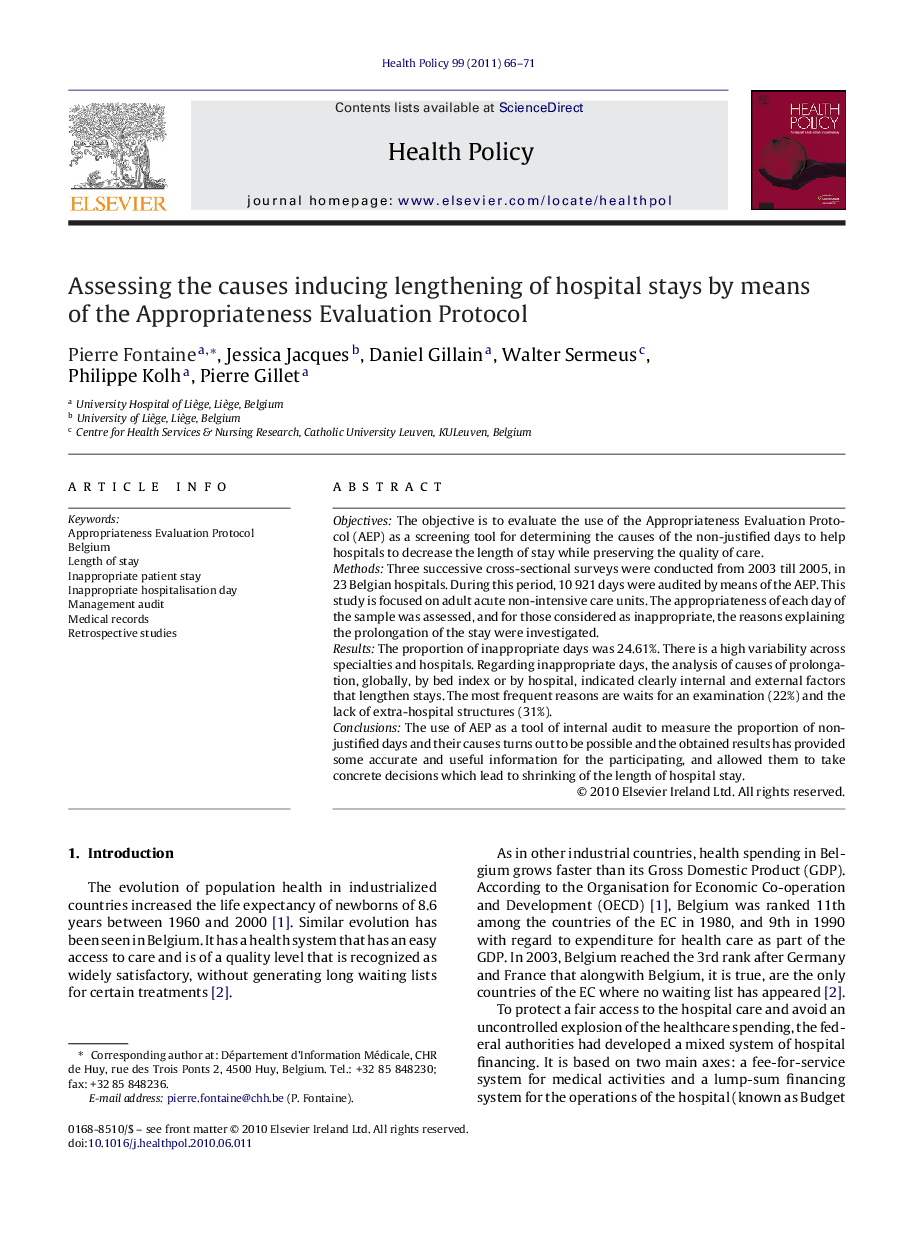| Article ID | Journal | Published Year | Pages | File Type |
|---|---|---|---|---|
| 4198188 | Health Policy | 2011 | 6 Pages |
ObjectivesThe objective is to evaluate the use of the Appropriateness Evaluation Protocol (AEP) as a screening tool for determining the causes of the non-justified days to help hospitals to decrease the length of stay while preserving the quality of care.MethodsThree successive cross-sectional surveys were conducted from 2003 till 2005, in 23 Belgian hospitals. During this period, 10 921 days were audited by means of the AEP. This study is focused on adult acute non-intensive care units. The appropriateness of each day of the sample was assessed, and for those considered as inappropriate, the reasons explaining the prolongation of the stay were investigated.ResultsThe proportion of inappropriate days was 24.61%. There is a high variability across specialties and hospitals. Regarding inappropriate days, the analysis of causes of prolongation, globally, by bed index or by hospital, indicated clearly internal and external factors that lengthen stays. The most frequent reasons are waits for an examination (22%) and the lack of extra-hospital structures (31%).ConclusionsThe use of AEP as a tool of internal audit to measure the proportion of non-justified days and their causes turns out to be possible and the obtained results has provided some accurate and useful information for the participating, and allowed them to take concrete decisions which lead to shrinking of the length of hospital stay.
